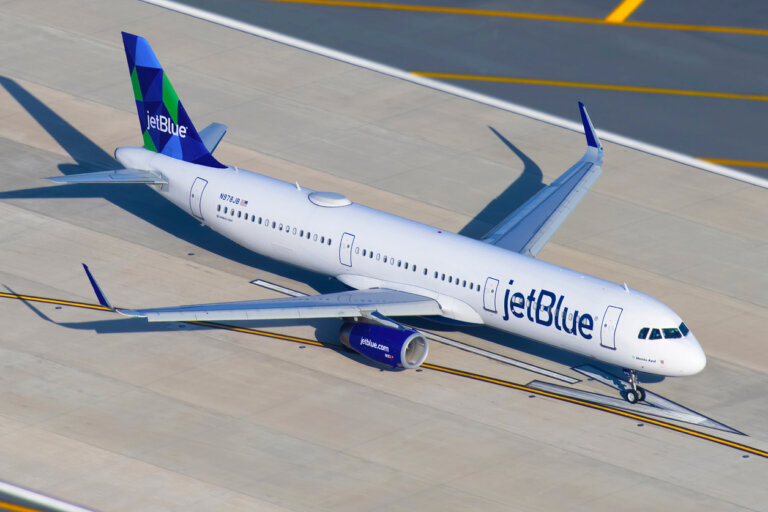In U.S.A., et al., v. American Airlines Group, Inc, et al., No. 1:21-cv-11558-LTS (D. Mass.), Judge Leo T. Sorokin of the U.S. District Court for the District of Massachusetts ordered American Airlines Group, Inc. (“American Airlines”) and JetBlue Airways Corporation (“JetBlue”) to terminate their partnership in the Northeast region. This ruling came as a victory for the U.S. Department of Justice (“DOJ”), which argued that the alliance was anticompetitive, would lead to increased fares, and harm consumers. Let’s review this antitrust case and its potential implications for the industry.
Background: Partnership Origins
American Airlines and JetBlue joined forces in early 2021 in a strategic move to purportedly enhance their competitive position against rivals Delta Air Lines, Inc. (“Delta”) and United Airlines, Inc. (“United”) in the Northeast. By collaborating, they purportedly aimed to do the following, without limitation:
- Offer and market each other’s seats on select routes;
- Coordinate schedules; and
- Optimize the use of airport resources.
Major airports, such as Boston Logan International Airport and the three primary airports serving New York City (LaGuardia, Newark, and JFK) were argued to have benefited from improved connectivity and expanded travel options.
The DOJ Lawsuit and Ruling
In September 2021, the DOJ filed a lawsuit against American Airlines and JetBlue, alleging that their alliance stifled competition and resulted in higher prices. The case went to trial in Boston and concluded in December 2022. Judge Sorokin of the District of Massachusetts held in May 2023 that the accord violated the U.S. Sherman Antitrust Act, a federal law that prohibits anticompetitive actions.
In his decision, Judge Sorokin found that the intended merger violated antitrust law by “replacing … competition with broad cooperation.” Judge Sorokin noted that Delta is the only other major airline with a presence in Boston and that no airline other than Delta and United has the same size in New York.
Judge Sorokin stated that “Though the defendants claim their bigger-is-better collaboration will benefit the flying public, they produced minimal objectively credible proof to support that claim … Whatever benefits to American and JetBlue of becoming more powerful, in the northeast generally or in their shared rivalry with Delta, such benefits arise from a naked agreement not to compete with one another.”
What This Means For American and JetBlue
Dissolving the partnership between American Airlines and JetBlue could pose several challenges. With tickets already sold and operational plans in place, undoing the partnership within the prescribed timeline could become logistically complex. Passengers who have already booked flights under the alliance could be inconvenienced. The airlines must navigate these challenges while adhering to the court’s ruling.
JetBlue expressed concerns in a securities filing that a ruling against the alliance could have an adverse impact on its business and financial condition. In addition, the court’s termination of the alliance is a strategic setback for American Airlines, which had been actively expanding its presence in the important markets of Boston and New York.
American Airlines arguably planned to leverage JetBlue’s strong foothold in these regions and improve its competitiveness against rivals Delta and United. With the dissolution of the alliance, American Airlines must reassess its strategies and find alternative approaches to solidify its position in these key markets.
Growing Antitrust Scrutiny
In addition to targeting the Northeast Alliance, the DOJ took action in March by filing an antitrust lawsuit to block JetBlue’s proposed acquisition of budget carrier Spirit Airlines, Inc. (“Spirit”), in an action styled U.S.A., et al., v. JetBlue Airways Corporation, et al., No. 1:23-cv-10511-WGY (D. Mass.).
The DOJ claims that the deal would likely result in increased fares, specifically affecting cost-conscious travelers. The DOJ’s intervention in the JetBlue-Spirit merger highlights the government’s strict scrutiny of potential anticompetitive deals. The Biden administration has been vocal about its commitment to maintaining fair competition and preventing market consolidation that could result in higher fares and reduced choices.
Next Steps for the Airlines
While American and JetBlue have criticized the decision, arguing that it lacks evidence of consumer harm, the court’s ruling signifies the importance of maintaining a competitive landscape in the airline industry.
Ultimately, the airlines must comply with the court’s orders and take necessary steps to disentangle their operations and end the partnership. This could involve the following, without limitation:
- Rebooking passengers;
- Modifying schedules;
- Cease information sharing and shared decision making; and
- Readjusting marketing strategies.
American and JetBlue must also reassess their growth plans and explore other avenues for expansion and market presence. Contact Justin Namatzadeh to discuss your antitrust claim today.

